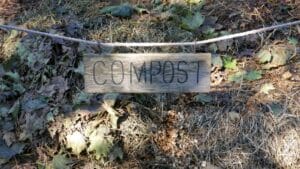
Learn Composting Basics: A Beginner’s Guide
Embark on a rewarding journey with “Learn Composting Basics: A Beginner’s Guide.” This comprehensive resource empowers you to unlock the transformative power of composting, nurturing your garden and embracing a sustainable lifestyle. Discover how to convert organic waste into “garden gold” – nutrient-rich compost that fuels healthy plant growth and revitalizes your soil. Dive into the enriching process, step-by-step, gaining the knowledge and confidence to create your own “garden gold” with ease.
Composting isn’t about complicated formulas or expensive equipment. With a basic understanding and a few essential tools, you can embark on this rewarding journey. Let’s explore the ingredients and tools you’ll need:
Nature’s Building Blocks:
- Nitrogen-rich “Greens”: Fruit and vegetable scraps, coffee grounds, eggshells (crushed!), grass clippings (weed-free), and stale bread provide essential nitrogen for microbial growth and decomposition.
- Carbon-rich “Browns”: Dry leaves, straw, shredded cardboard (unprinted!), twiggy prunings (chopped), wood chips (untreated), and sawdust (sparingly) offer structure and balance, ensuring proper airflow and moisture retention.
Your Composting Toolkit:
- Comfortable Abode: Choose a well-drained, partially shaded location for your compost bin or pile. Repurposed pallets or store-bought options provide suitable homes for your composting endeavors.
- Turning Tool: A pitchfork or shovel is your trusty companion, regularly fluffing the pile to maintain aeration and accelerate decomposition.
- Temperature Monitor (optional): A compost thermometer helps you track the internal temperature (aiming for 135-160°F) for optimal microbial activity.
- Hydration Master: Water plays a crucial role. Keep the pile moist but not soggy, aiming for the consistency of a wrung-out sponge.
Optional Boosters:
- Finished compost or garden soil: Introduce beneficial microbes to jumpstart the process.
- Compost starter (commercial): Follow instructions carefully for an additional microbial boost.
Remember, patience is key! Composting is a natural process that unfolds over time. Embrace the learning journey, experiment, and observe how your pile responds to adjustments.
Here are some guiding principles for successful composting:
- Balance is Vital: Maintain a 3:1 ratio of browns to greens by volume. This ensures optimal nutrient availability for microbes.
- Moisture Matters: Consistent moisture is crucial. Adjust with water if dry, and add browns if overly wet.
- Aeration is Life: Regular turning (every 1-2 weeks) allows oxygen to reach microbes, ensuring efficient decomposition.
- Size Matters: Larger piles (around 3x3x3ft) retain heat better, promoting faster decomposition.
- Diversity is Delicious: Include a variety of materials for richer, more nutritious compost. Think of it as a balanced diet for your soil!
- Monitor and Adapt: Use your thermometer and observations to understand your pile’s needs and adjust accordingly.
Challenges Are Stepping Stones:
- Slow decomposition? Check moisture, balance, and aeration. Consider adding activators if needed.
- Unpleasant odors? Anaerobic conditions are likely the culprit. Turn the pile and add browns for better aeration.
- Pesty visitors? Bury scraps, use a lidded bin, and avoid meat/dairy/oils.
With the knowledge gleaned from “Learn Composting Basics: A Beginner’s Guide,” you’re now equipped to embark on this enriching journey. From understanding the essential ingredients to navigating common challenges, you have the tools to transform waste into “garden gold.” Remember, composting is a natural process that thrives on experimentation and observation. Embrace the learning curve, track your progress, and relish the satisfaction of nurturing your garden and the earth with your own homemade compost. As you witness the magic unfold, don’t hesitate to delve deeper into the guide for more advanced techniques and troubleshooting tips.
Additional Resources:
- US Environmental Protection Agency: https://19january2017snapshot.epa.gov/recycle/composting-home
- The National Gardening Association: https://garden.org/
- Compost Tea Brewing: https://www.agrosustentavel.com/wp-content/uploads/2021/02/Teaming-With-Microbes.pdf
- Ultimate Composting Guide: https://forestry.com/reviews/how-to-make-compost-quickly-the-ultimate-easy-guide-for-fast-result
Happy composting!
